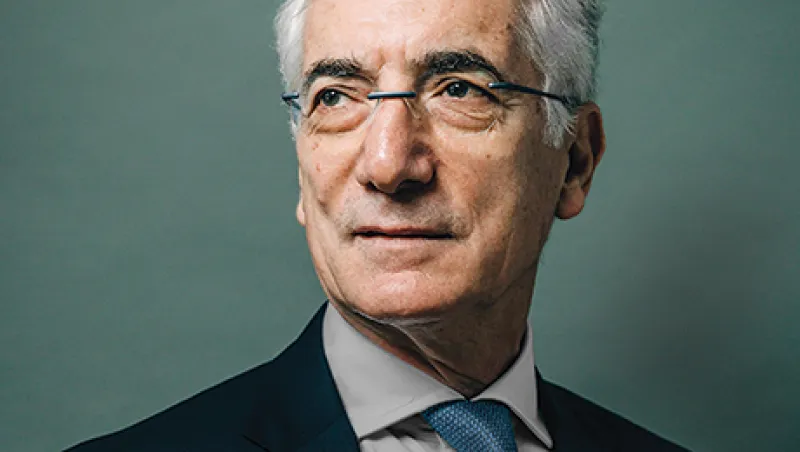As one of the first venture capitalists in the U.K., Sir Ronald Cohen has a reputation as a soothsayer. Cohen was early to recognize technology’s power to transform society. His firm Apax Partners backed the makers of Dolly the sheep, the first mammal clone. Before Dolly was born in 1996, cloning seemed impossibly sci-fi; today it yields whole teams of polo ponies.
Now Cohen sees an equally exciting future for impact investing, which weighs an investment’s environmental and social returns as well as its economic gains. “I have a sense that this is an idea whose time has come,” the slim and sharply dressed money manager tells Institutional Investor at the exclusive Athenaeum club on London’s Pall Mall.
Whether it’s big corporations discovering their conscience or young entrepreneurs looking to fix entrenched problems like prison recidivism or homelessness, Cohen believes, the goals of capitalism and philanthropy are intertwining. Before too long, institutional investors will consider not just risk and reward but “risk, reward and impact,” he predicts.
For Cohen, it feels not unlike the early days of venture capital. Although investing for reasons other than pure financial return has been around since the early days of asset management, the idea of using the capital markets to achieve social or environmental as well as economic gain has built momentum in recent years. The term “impact investing” was coined in 2008 at a retreat hosted by the Rockefeller Foundation; Cohen has been one of its most influential and effective champions, developing an entire market infrastructure in support of this new form of capitalism.
Historically, impact investors focused on private companies and markets. Cohen’s is a much broader revolution where businesses of all stripes, money managers, investors, entrepreneurs and governments will not only be mindful of their impact but seek to bring about positive change. Once people and institutions are fitted with what he calls the “impact chip,” they start viewing the world, and the potential of capital and capital markets, differently. In the U.S. champions of the impact movement include Pierre Omidyar and Jeff Skoll, the founder and first employee of eBay, respectively. Both have devoted considerable assets to impact and social venture. (Omidyar has said that he views the online marketplace company he invented as the first impact investment because of the life-changing way in which it democratized commerce.)
Deval Patrick has the impact chip. The former governor of Massachusetts got to know Cohen in about 2011, when that state was introduced to so-called social impact bonds. Cohen has been a chief proponent of these bonds, which are designed to pay out in return for borrowers addressing or alleviating social problems. Later, Cohen told Patrick about his work with impact investing. Patrick, who left office in January 2015, was inspired: Last spring he joined Boston-based Bain Capital to lead a social impact fund.
At 70, the impeccably mannered Cohen, who heads the Global Social Impact Investment Steering Group established by the Group of Eight, is still a force to be reckoned with. He bristles at the suggestion that impact investing is becoming the purview of the rich. Cohen sees it as a home for outsiders — like himself.
Knighted in 2000 for services to venture capital, he was born in Egypt of Syrian Jewish ancestry. In 1957, the year he turned 12, he and his family were forced to flee when then-president Gamal Abdel Nasser began persecuting the country’s Jewish population in the aftermath of the Suez Crisis. They moved to the U.K. with almost nothing; when Cohen started state-funded school in North London, he spoke very little English. But he passed the entrance exam to the University of Oxford, where he earned a degree in philosophy, politics and economics from Exeter College.
Cohen co-launched a venture capital outfit in London in 1972 at the tender age of 26, and then combined forces with American VC pioneer Alan Patricof in 1978 to form what became Apax Partners. In those days venture capital was uncharted territory, much like impact investing and venture philanthropy today. Venture capital benefited from a 1978 U.S. rule shift allowing institutions to invest in more than stocks and bonds. Recent similar changes have opened up the possibility for those investors to look beyond direct financial gain when committing capital, and Cohen thinks it will soon become standard practice to take social and environmental impact into account.
His enthusiasm is contagious: “When you get an idea as fundamental as this, you begin to change the mind-set of the whole of society,” he insists. This, after all, is a man who dreamed of cloned sheep.
Follow Imogen Rose Smith on Twitter at @imogennyc.






